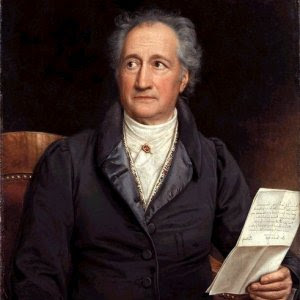Most of the police officers I've met have been very decent guys. But I've run across a few who were obviously narcissistic personalities, and a couple who were abrasive to the point where I wondered if they were sociopaths.
Police departments know that they attract power-hungry sociopaths, and therefore guard against them. I'm not sure exactly how they weed them out, but they probably use the Minnesota Multiphasic Personality Inventory (MMPI), a long questionnaire, during the application process. The MMPI is larded with questions like, "Do you ever put off till tomorrow what you can do today?" Everybody does that at times, of course, so if someone answers enough questions like that dishonestly, that indicates sociopathy.
If you've read enough about serial killers, you'll be struck by the high percentage who've tried to join a force. Kenneth Bianchi, one of the two men who were collectively known as "The Hillside Strangler," tried to be a policeman.
Edmund Kemper, who killed his grandparents, his mother her friend, and six young women in Santa Cruz in the 1970's, had wanted to be a state trooper, but was rejected because of his 6' 9" height.
Orlando shooter Omar Mateen tried to get a job with the Florida Department of Corrections, but was involuntarily dismissed from its training program. Remember those pictures of Mateen with the NYPD t-shirts?
The reason the FBI were so suspicious of Richard Jewell in the Atlanta Olympics bombing case was because he fit the profile so well. He was a wannabe cop working as a security guard, and had been censured in the past for his "excessive enthusiasm" on the job. (The FBI initially thought that Jewell had planted the bomb himself so that he could then "discover" it and become a hero.) In fact, Jewell was a hero, since he helped evacuate the area before the bomb went off, and Eric Rudolph was later found to be the real bomber. But, he did fit a certain profile the FBI was familiar with.
In any case, police departments in the US generally do a good job of weeding out sociopaths these days: note that all of the people mentioned above were rejected by the police. (And I could easily be wrong about that ~6% guess.) But, inevitably, some slip through. Drew Peterson, the infamous Illinois police sergeant convicted of killing his third wife and widely thought to be responsible for the disappearance of his fourth, is an obvious case.
There have even been a number of cases where active or former police actually became serial killers. Most of the killers on this list are European, but psychology works the same way on both sides of the Atlantic.
There's no need to go over every recent highly-publicized case, but with most of them, after the initial media hoopla, it turns out that the innocent black victim was in fact not so innocent. The BLM movement essentially started with the death of Michael Brown in Ferguson, and that case was not atypical. The cop involved there, Darren Wilson, was not only not the aggressor, but even showed remarkable restraint at first. And Wilson was by all accounts a diffident, well-mannered guy.
There have been a couple of recent cases where a jumpy cop overreacted, mostly out of fright; Chinese-American NYPD officer Peter Liang panicked and shot an innocent black man, Akai Gurley, in the darkened stairwell of a NYC housing project. And Geronimo Yanez, the Hispanic cop who recently shot and killed Philando Castile in Minnesota, may have panicked and overreacted as well, though that case is still being investigated.
But bear in mind, a panicky, frightened cop is actually the opposite of a sociopath: sociopaths tend to be cool under pressure, and rarely act from fear.
In fact, the only case I've heard of recently where a cop who was a likely sociopath killed an innocent man was the Charleston, SC case where Michael Slager shot Walter Scott five times in the back while Scott was fleeing. Slager claimed that Scott had taken his Taser, which was a lie; and Slager claimed that he felt in danger from Scott, but Scott was running away from him at the time.
That was, obviously, an out and out murder.
But overall, for every case I read where a cop is obviously guilty, or guilty of a panicked overreaction, there are several where the cop is not at fault, or where the situation is, at worst, a gray area.
(To listen to the BLM crowd, you'd think every case was like the Slager/Scott case.)
So where are the sociopathic cops? There have to be some of them out there. And why do they never seem to be involved with all of the highly publicized recent cases, most of which turn out to be nothing like the way the media initially portrays them?
My guess: when sociopaths operate, they're usually too sly to get caught. They're not going to just kill someone for no reason. And if they did kill someone, they'd make sure they were off camera, had no witnesses, and had a drop gun at the ready just in case. Slager would have gotten away with his murder if someone hadn't just happened to videotape it.
I also suspect that sociopathic cops, like most cops, do their utmost to avoid killing in the line of duty these days. (It's not worth the aggravation.)
Instead, their sociopathy probably gets expressed in a myriad of smaller ways: being corrupt, bullying other cops (especially those further down the chain of command), mistreating perps, and bending the rules wherever they can.
Despite what the media would have us believe, the cops we've read about recently, the ones who've been involved in shootings of blacks, have not struck me as sociopaths.





































